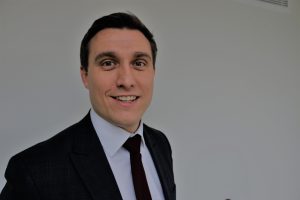Guest Post from Jonnie Whittle at Clarion Wealth Planning Ltd.
But before that – CB here – I’m frequently contacted by people who have products and services to sell to my clients. For over 20 years I have maintained a policy that I do not accept introducers fees or commissions – I simply broadcast and comment on good ideas. One group that contact me are financial planners, often asking for recommendations. My response is always to ask them to submit case studies that may be of interest to my readership. They all say “yes” but seldom do anything about it. So here’s a “shout out” for Jonnie Whittle at Clarion, whose Chairman Keith Thompson and MD Ron Walker are old friends from my past. Thank you Jonnie for taking the time and trouble.
If you are over 50 and either have or are likely to sell a practice, you will find this brief but interesting.
James sold his practice three years ago. Following a 36-month earn-out James is about to fully retire. He is aged 60 and his wife, Elaine, is 55. His current financial situation can be summarised as follows.
- Main residence: £800k (small mortgage £80K)
- South of France holiday home: £300k
- NHS Pension: £30k net p/a with a lump sum of £110k
- Personal Pension Fund: £380k
- ISAs: James £90k; Elaine £90K
- Sale proceeds after tax: £1.8m
- Cash: £40k
- Elaine: Teacher’s pension £12k net p/a already in payment
- 2 Children, aged 26 & 28, both financially independent but renting at the moment
James and Elaine would like to travel/holiday more for the next 5-10 years and envisage their expenditure to be £120k, reducing to £80k from age 70. They would also like to help their children with deposits for their first houses at around the age of 30.
As in business, the key to enjoying the fruits of your hard work is to have the comfort and confidence that you have enough money to do what you need to do and that it is working as efficient as possible. To put it simply your income needs to cover your chosen expenditure, matching a well-thought-out strategy.
There are many ways to deliver James and his family’s objectives. Initially the following may be one option.
- Pay down the mortgage on the residence using £80k tax free lump sum from James’s NHS pension
- Place £100K from the sale proceeds in a year’s fixed-rate cash account, and £100K in a three-year fixed-rate cash account to fund the children’s house deposits from the sale proceeds
- Review and realign the risk profile of the pension and ISA investments to an agreed investment mandate for the medium to long term
- Review the couple’s full estate and calculate the possible IHT liability, which can be covered with a simple whole of life policy written in trust
- £1.6m could be invested in a tax-efficient offshore investment bond, allowing up to £80k (5% of the principal sum) per annum to be withdrawn without any tax.
- £120k per annum is required in the medium term. This will consist of: James’s NHS pension income of £30k, after basic rate income tax, Elaine’s £12k pension, and the remainder made up of £78k from the offshore bond with no further tax to pay.
The main advantage of the above solution is the control of possible monies from the offshore bond, with the added bonus that by minimising withdrawals from the personal pension fund a potentially valuable source of family wealth is kept outside the couple’s taxable estate.
The key is to keep James within the basic (20%) rate income tax band by using a mixture of cash flow from different assets. This will need to be adjusted at state pension age as there will potentially be another £10k of taxable income received by James.

01625 466360
http://www.clarionwealth.co.uk


This is interesting, and I can understand it’s important to begin with the end in mind (not my phrase) but reading that, I’m curious to see how he got to that stage